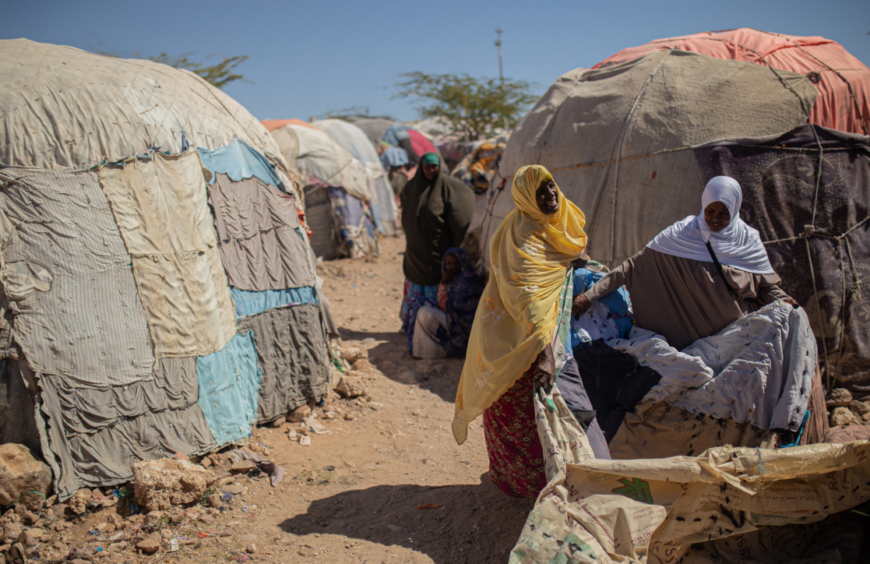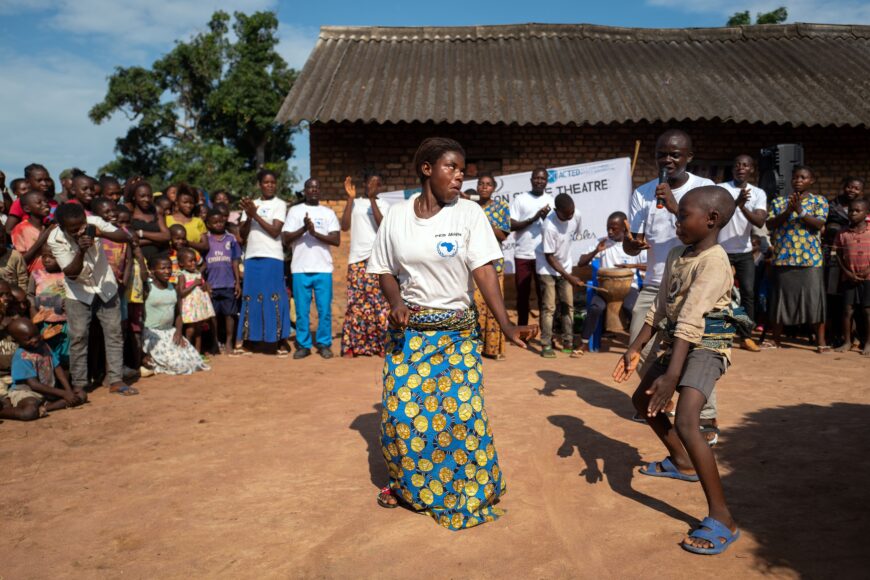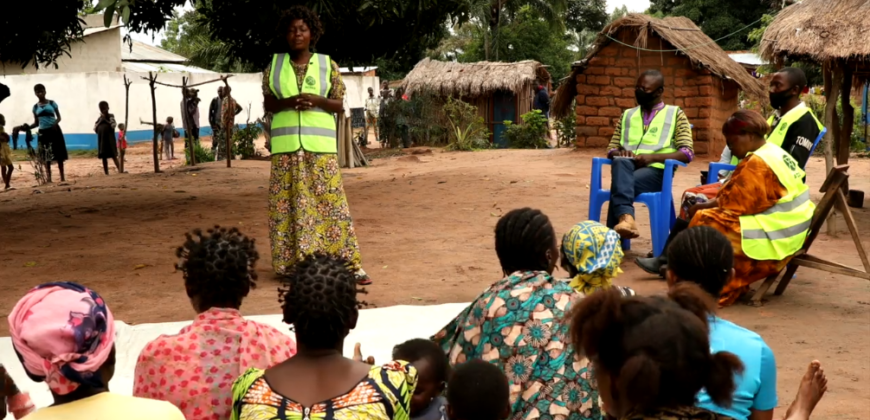Women and girls’ experience of displacement is significantly distinct from the one of boys and men. Displacements contexts are prone to reduce intimacy, challenge dignity and favour promiscuity. Internally displaced women often struggle to access basic services, face gender-based violence and are often excluded from decision-making processes.
In the Democratic Republic of the Congo, Somalia and Iraq, three countries with complex displacement contexts, ACTED is committed to support women in the specific challenges they face, with the support of the EU.
Gender-based violence is exacerbated in contexts of displacement
In the DRC, where 5.6 million people are currently internally displaced, armed group participate in the spread of systematic sexual violence, making women and girls particularly vulnerable. Privacy and intimacy women find at home unfortunately don’t come along when they flee armed conflict. This is also true in Iraq and Somalia, where most IDPs live in informal sites which sanitation facilities sometimes lack locks, doors or windows, making women unsafe and at risk of violence.

Building safe spaces
Site improvement and maintenance activities are crucial to protect displaced women. ACTED and ECHO continuously assess needs in camp sites they work in by conducting safety audits to evaluate gender-based violence risks and vulnerabilities. The goal is to minimize risks by creating a safer environment. In Somalia, after an audit showed that target sites lacked lights, ACTED installed street solar lights at communal points and infrastructure and distributed solar lanterns to female-headed households.
Inside safer settlements, women and girls also need specific spaces to freely express themselves. Setting up such spaces is one of the major responses given by ACTED and the EU for women to feel safe. As such, ACTED supported the creation of several “safe spaces” in Nyunzu, in DRC, and participated in awareness raising in creative ways, including through participatory theater plays in the town centre, and by identifying local focal points to follow up on women-specific issues. In target sites in Iraq, ACTED has set up a referral system with protection organizations while trying to include local organizations to ensure the continuity of this activity.

A crucial lack of representation
While women suffer increased mental and physical violence, implementing community rules regarding gender-based violence is made difficult as women are most of the time overpowered by men in local committees, and as such not enough involved in decision-making. In Somalia, ACTED seeks to ensure that women are well represented in Community Management Committees (CMC) so that their voices are heard. As a result, every CMC of 5 members ACTED is involved with at least 2 women. In the Tanganyika province (DRC), women are also often left out from community decisions also due to cultural reasons, as they are usually seen as inferior to men.
Women face social and economic isolation
More generally, women face social and economic isolation, exacerbated by displacement contexts, often cutting them off from basic services. Doubting the availability and quality of services of public centres, women internally displaced in Iraq, for instance, cannot afford private or specialized care such as gynecology. The same issue goes for education, which is free in Iraqi public schools but demands financial investments for transportation and material.

Female-headed households struggle the most
Already suffering from tougher economic patterns outside camp settlements, Iraqi women IDPs tend to have limited professional skills and find it difficult to insert themselves in the workforce. The challenge is even greater for women female-headed households, who have to provide for basic family needs and care for their children. In Somalia, where such struggles also exist, ACTED and ECHO support vulnerable and food insecure households with cash transfers to ensure they have access to dignifying living conditions and livelihoods. 80 percent of households supported are female-headed.
Women and girls account for half of the world’s IDPs and their living conditions are made harder in displacement contexts. Therefore, they need to be extra supported: ACTED and ECHO pursue daily efforts for them to be able to live in dignity, and enhance community living as a whole, through an innovative 3 year programmatic partnership program.

Photo credits: Gwenn Dubourthoumieu